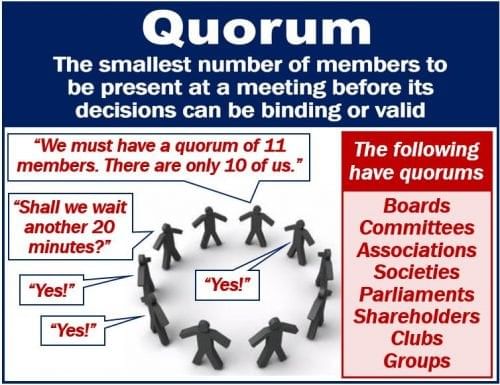The Union Budget | General Test Preparation for CUET - CUET Commerce PDF Download
ANNUAL FINANCIAL STATEMENT
The budget is a declaration of the government’s fiscal policy and informs us how the government plans to spend the public funds and how they will be raised by the government.
WHAT IS BUDGET?
The Union Budget is a yearly document presented by the government stating how much money it earns from various sources and how it will be spent. It also outlines its strategy for raising money via taxes, and its plans for expenditure. It is a constitutional obligation under Article 112 of the Constitution, where it has been referred to as Annual Financial Statement.
- Once every financial year (April 1 to March 31).
- The actual date is fixed by the President.
- By convention, it is presented in Parliament (Lok Sabha) on the last working day of February.
The Budget is preceded by an Economic Survey which is an annual commentary on the state of the economy. It is presented in Parliament just before the Union Budget and soon after the Railway Budget.
IMPORTANT PARLIAMENTARY TERMS
Adjournment
The speaker of the Lok Sabha determines when the sitting of the House is to be adjourned to a particular day or to an hour or part of the same day. In the Rajya Sabha, the Chairman decides when the Rajya Sabha needs to be adjourned.
Breach of Privilege
If a person disregards the privileges, rights and immunities of the Members of Parliament, he is said to commit a Breach of Privilege.
Caretaker Government
The government in the interregnum, which comes into existence as soon as the Council of Ministers resigns or loses confidence, or the Prime Minister dies. It lasts until the next Council of Ministers is formed. It is a constitutional necessity.
Dissolution
The President of India can dissolve the Lok Sabha as per the procedure in the Constitution. The dissolution ends the very life of the existing House and fresh elections are essential to form a new House.
Extradition
It is the surrender by a foreign country of a person accused of a crime in upon a demand made the country, where the crime was committed.
Floor Crossing
The defection of a Member of Parliament from the party on whose ticket he was elected, to another political party.
Guillotine
Due to lack of time, a demand-for- grants are put to vote whether discussed or not in the House on the last day of the allotted time. It concludes the discussion on demands for grants.
Hung Parliament
If in a general election, no political party or a coalition is in a position to form a majority government, such a Parliament is called a Hung Parliament.
Lame Duck Session
The last session of a Parliament is held after a new Lok Sabha has been elected after the general election. The lame duck in it are those members who were part of the old House but could not get re-elected for the new House.
Question Hour
The first hour of every sitting in both the Houses (11 am to 12pm) is devoted to the questions raised by members of the house. The Question Hour is an important mechanism through which the executive’s accountability is brought about.
(b) There are three types of questions.
(i) Starred Question
Require oral answers.
(ii) Unstarred Question
Only written answers are given.
(iii) Short Notice Questions
Related to matters of urgent public importance and can be asked by members with notice shorter than ten days prescribed for an ordinary question.
Snap Vote
A vote taken unexpectedly without voters being briefed or informed in advance.
Speaker Pro–tem
As soon as the new Lok Sabha is constituted, the President appoints a Speaker Pro-tem, who is usually the senior-most member (seniority in terms of number of year he/he served as a member) of the House. His functions include administering the oath to the new Lok Sabha members and presiding over the election of the new Speaker. His term ceases as soon as the Speaker is elected.
Quorum
A quorum is the minimum number of members of a deliberative assembly necessary to conduct its business. The quorum for either House is 1/10 th of the total number of members.
 Quorum
Quorum
Rule of Law
Given by the English Jurist Dicey. It has three meanings:
(a) absolute supremacy of law
(b) equality before law
(c) Constitution is the result of the ordinary law of the land.
Vote on Account
An estimate of an advance payment to enable the government departments to carry on their work from the beginning of the financial year till the passing of the Appropriation Act.
Whip - A directive issued by a political party to ensure the support of its members voting in favour or against a particular issue in the house. A person may lose the membership of the party and the legislature if he votes against the whip or obtains from voting.
Zero Hour
Not mentioned in Rules of Procedure and is an Indian innovation. Matters of urgent national importance are raised without any prior notice. It generally starts after the Question Hour till the agenda of the day.
|
155 videos|399 docs|771 tests
|
FAQs on The Union Budget - General Test Preparation for CUET - CUET Commerce
| 1. What is the Union Budget? |  |
| 2. What is the significance of the Union Budget? |  |
| 3. What are the key components of the Union Budget? |  |
| 4. How is the Union Budget prepared? |  |
| 5. How does the Union Budget affect common citizens? |  |
|
155 videos|399 docs|771 tests
|

|
Explore Courses for CUET Commerce exam
|

|


















